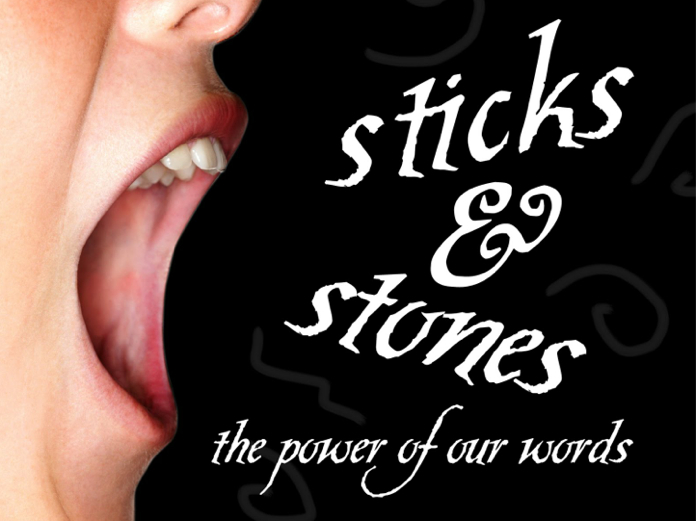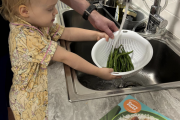Sticks and Stones


Image source
You know the old rhyme ‘Sticks and stones may break my bones, but words will never hurt me’. Twenty five years after I first heard the old adage, I find I disagree.
Recently, we took the kids to the foreshore where we sat on big boulders that separate the path from the water. Boys will be boys, and our boys immediately scrambled down the rocks to start a competition to see who could throw a stick the furthest into the water.
Seeing possible danger at every stick throw, as mothers are wont to do, I warned them, ‘Be careful when you throw sticks!´ My daughter was by my side, collecting more sticks to hurl into the water. Without even looking up, she murmured ‘Sticks and stones may break my bones, but words will never hurt me.’
As I sat there on the rocks, the icy wind howling around my ears, I was taken back to the playground of my primary school. After being called Snothead and some other choice names as a six year old, I was upset and crying. I set off to tell the teacher. She was probably sick of all the dobbing and was counting the minutes till she could get back to the staff-room for a coffee. Either way, this lady had very little sympathy for taunts, so she rolled out the old ‘sticks and stones’ nugget and basically told me to nick off.
But now as an adult, and more importantly a parent, I think she was wrong. I know the rhyme was oft repeated so that kids would develop some resilience and ignore stupid taunts from other children. But there is power in the spoken word, and both names and words can, and do hurt.
I believe that if we say something enough, sooner or later we start to believe it. And so do our kids.
As a writer, words are rather important to me. My husband and I have always been carefully intentional about the way we speak to our kids. From the beginning of our children’s lives, we banned the phrase ‘I hate…’ because hate is a word with a lot of weight, and one that shouldn’t be bandied about. Our children are not allowed to call someone stupid or dumb, because no-one is either stupid or dumb. And early on in the preschool years, we made it a rule that our kids were never to say “You’re not my friend anymore” after our eldest wept copious tears after being on the receiving end of those five little words.
I cringe when I hear parents swearing at their kids in the supermarket. Sideline comments at the sportsground can cause wounds, too. No child ever deserves to be called fat, lazy, stupid, ugly, or useless. Those words hurt a person where no-one else can see the damage, and sometimes those words are remembered long after the person who said them is gone.
Our aim as their parents is to encourage our kids, and instil confidence with the words we speak. We tell our children every day that we love them, and that they incredibly precious to us. They will rise to our expectations for them, so we want them to know that we expect they will do great things.
Words have the power to build up, or the ability to tear down. The Bible even goes so far as to say that the power of life and death are in the tongue. I want the words that I impart to my children to be positive, life-affirming ones that they can carry around lightly for the rest of their lives.
Jodie McEwen is a freelance writer, one-time magazine editor and mum of three. She has shamelessly exploited her children for inspiration in blogs, magazine features and web articles for the last five years. Over time, Jodie’s children have labelled her ‘the best mum ever’ and ‘the meanest mother in the world.’ She wears both badges with pride. To find out what she’s up to currently, click here.










